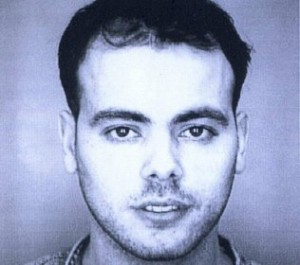
Mohamad Hammoud has spent 10 years behind bars for conspiring to aid Middle Eastern terrorists. The 37-year-old suspected leader of a Hezbollah cell in Charlotte has 145 years left on his sentence.
But Hammoud is fighting to get out of prison now.
His attorneys will try to persuade U.S. District Judge Graham Mullen at a hearing Wednesday to slash Hammoud’s sentence to time served – or at least to no more than 15 years in prison.
“The overwhelming evidence here is that Mr. Hammoud’s original sentence is a miscarriage of justice,” defense attorneys James McLoughlin of Charlotte and Stanley Cohen of New York argued in court documents.
Hammoud should not be sentenced to spend the rest of his life in prison because of what his lawyers say are irrational fears about him and Hezbollah.
Hammoud’s attorneys say their client should get no more than 15 years in prison. Any longer sentence, they argue, would be “unconstitutionally disproportionate” and “grossly excessive.”
But federal prosecutors are urging the judge to keep Hammoud in prison for the rest of his life.
“Defendant was motivated by fanatical terrorist ideology and, thus, represents a serious future danger to society,” Assistant U.S. Attorneys David Brown and Craig Randall wrote in court documents. “Any sentence less than life imprisonment will provide defendant the opportunity and the motivation to carry out acts of violence in support of Hezbollah.”
Hezbollah was responsible for the 1983 suicide attack on the U.S. Marine barracks in Lebanon that killed 241 Americans, prosecutors say, “and ushered in the modern age of suicide attacks.”
Hammoud’s case is among hundreds that the U.S. Supreme Court has sent back to courts across the country following a ruling in 2005 to abandon nearly two decades of federal sentencing practices.
Federal judges no longer have to follow the complex system of guidelines that Congress designed in the 1980s to make prison terms tougher and more uniform.
The nation’s highest court didn’t throw out the guidelines altogether. Instead, the justices ruled that they are to be advisory – not mandatory as they had been.
First test of terrorism law
Hammoud was the first person tried in the United States under a 1996 federal law banning material support to terrorist organizations.
During the five-week trial in 2002, prosecutors presented evidence that Hammoud was a member of a Hezbollah cell in Charlotte that smuggled millions of dollars worth of cigarettes from North Carolina to Michigan and sent some of the illegal proceeds to Lebanon to help finance Hezbollah’s military operations.
Hammoud was convicted of conspiring to provide material support to a terrorist organization and 13 other crimes, including cigarette smuggling, racketeering and money laundering.
In 2002, Judge Mullen gave Hammoud the maximum sentence – 155 years in prison.
“It is not the kind of sentence anybody takes any pleasure in giving,” the judge said after imposing the punishment. “I do so because I believe it is required by law.”
Hammoud denied heading the Hezbollah cell. His motivation in sending money to Lebanon, his lawyers say, was to help poor people and orphans – not to help finance terrorism.
Hammoud’s sentence is much harsher than punishments meted out to others across the country for providing financial support to terrorists, the defense lawyers argue. The average sentence for helping finance terrorist organizations, they say, is about nine years.
McLoughlin and Cohen point out that no nuclear device, biological or chemical weapon or weapon of mass destruction was involved in Hammoud’s case.
“Mr. Hammoud took no action and made no statement in support of violence against the United States,” they wrote.
The defense lawyers also noted that if Judge Mullen reduces Hammoud’s sentence to time served, their client would not be set free in the United States. Instead, he’ll be held in prison until he can be deported to Lebanon.
‘Fanatical believer’?
Federal prosecutors paint a far different picture of Hammoud.
His criminal conduct, the prosecutors argue, “goes far and away above that of the typical criminal.”
“The most dangerous individuals are those who burrow into a peaceful society, raising funds for the cause, building up a network of fanatical believers and waiting for the time and opportunity to strike at the ‘infidels’ as did the Al Qaeda cell members on September 11, 2001,” the prosecutors wrote in one court document.
“Defendant was indoctrinated into radical, Islamic fundamentalism while still a youth and honors Ayatollah Khomeini, Imad Mugniyeh, Ayatollah Fadlallah and Nasserallah, some of the most notorious terrorists in modern history.”
During Hammoud’s trial, prosecutors introduced wiretaps of Hammoud talking about Hezbollah and its violent agenda, as well as photographs of Hammoud holding an AK-47 at the Hezbollah Center in Lebanon.
Investigators also found anti-American videos in Hammoud’s east Charlotte home. One shows a burning car with a crowd chanting “Death to America. Death to Israel.”
“As an enemy combatant successfully removed from the front lines, defendant has earned a sentence of life imprisonment,” the prosecutors argue. “And, more importantly, the American people deserve to be free of fear of any retaliatory efforts by this fanatic.”
Charlotteobserver

Leave a Reply
You must be logged in to post a comment.